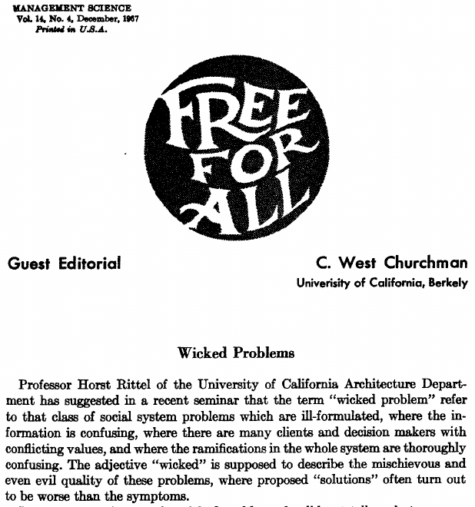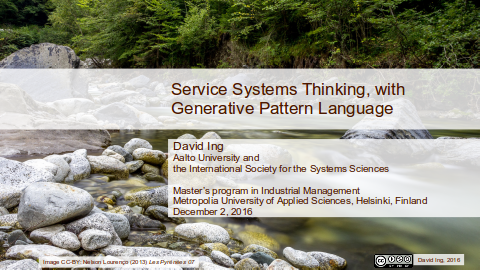At U.C. Berkeley in the 1960s, Christopher Alexander, Horst Rittel and C. West Churchman could have had lunch together. While disciplinary thinking might lead novices to focus only on each of pattern language, wicked problems and the systems approach, there are ties (as well as domain-specific distinctions) between the schools.
West Churchman joined Berkeley in 1957, and initiated master’s and doctoral programs in operations research at the School of Business Administration. From 1964 to 1970, Churchman was associate director and research philosopher at UC Berkeley’s Space Sciences Laboratory, directing its social sciences program. After his retirement in 1981, Churchman taught in the Peace and Conflict Studies program for 13 years.
Horst Rittel came to the Berkeley College of Environmental Design in 1963, the same year that dean William Wurster recruited Christopher Alexander. In 1973, Rittel split his time between Berkeley and the architecture faculty at the University of Stuttgart, where he founded the Institut für Grundlagen der Planung.
Christopher Alexander became a cofounder of the Center for Environmental Structure at Berkeley in 1967, gradually moving outside of the university by 2000.
The tie between Churchman and Rittel are well-documented, in a 1967 article in Management Science.
… Read more (in a new tab)Professor Horst Rittel of the University of California Architecture Department has suggested in a recent seminar that the term “wicked problem” refer to that class of social system problems which are ill-formulated, where the information is confusing, where there are many clients and decision makers with conflicting values, and where the ramifications in the whole system are thoroughly confusing.



